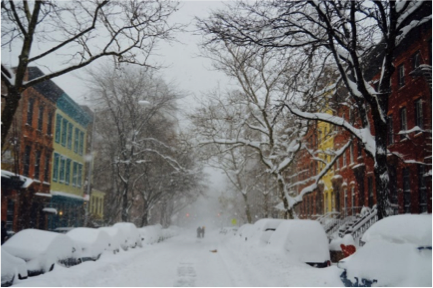It has been a snowy winter already, and we still have months to go! Snowstorms and icy roads make us all reluctant to leave our homes, but some people are rightly worried that inclement weather also means they are unable to access the treatment and medication they need for drug and alcohol addiction recovery. As a treatment provider in New England, we do our utmost to make sure that our outpatient clients are never without proper care.
Here’s what you need to know before the next snowfall.
When It Will Happen
By regulation, opioid treatment centers are required to be open 365 days year, including holidays, weekends, and all but the worst kind of weather. The decision to temporarily close a center due to bad weather conditions comes from the very top down. The Department of Public Health’s Bureau of Substance Addiction Services (BSAS) will assess the weather reports, and then give opioid treatment providers permission to close if they think employees cannot safely get to the center.
IF Spectrum decides to close, you will be notified in several ways. All clients who have opted to receive text notifications, will be informed by a text message. We also do everything we can to make sure people have some advance notice, either by phone, email, or in-person at meetings the day before an anticipated closure. Clients who attend any of Spectrum’s Prevention of Abuse and Violence through Education (PAVE), Driver Alcohol Education (DAE), or anger management classes held at local colleges should check the school’s closure procedures, as they may differ from Spectrum’s.
During Closures
Clients can still receive medication-assisted-treatment (MAT) while the program is closed by reporting to one of our inpatient locations in Westborough and Weymouth. Some clients may qualify for a temporary take-home dose if they meet certain criteria established by the Substance Abuse and Mental Health Services Association (SAMHSA), which consider the following:
- Absence of recent abuse of drugs (opioid or nonnarcotic), including alcohol
- Regularity of clinic attendance
- Absence of serious behavioral problems at the clinic
- Absence of known recent criminal activity, e.g., drug dealing
- Stability of home environment and social relationships
- Length of time in comprehensive maintenance treatment
- Assurance that take-home medication can be safely stored within the individual’s home
SAMHSA and Spectrum believe that the ability to take medication unsupervised is an important part of providing individualized care, especially under special circumstances. It doesn’t help anyone to have rigid rules that prevent people from getting the help they need. The above criteria are not meant to be a deterrent, but rather a means for clinicians to determine whether the client is ready and suited to this treatment method.
Be Prepared
Spectrum will only close in emergency situations or during inclement weather where roads are unsafe for clients and staff. In the event of closure, we do everything in our power to inform clients in advance and make sure they continue to receive the medication and care that they need. Clients can be prepared by doing the following:
- Register your phone for text alerts for program updates and closures
- Utilize the group cancellation line available at all Spectrum programs
- Anticipate longer wait times on the day before anticipated closures in order to receive take-home doses
- If you don’t normally receive take-homes, speak with your clinician to see if you qualify
- Arrange back-up transportation
We strongly encourage clients to plan ahead by monitoring weather forecasts and checking with your local clinic.
For more information on Spectrum Health Systems, visit www.SpectrumHealthSystems.org or call 1-877-MyRehab.



